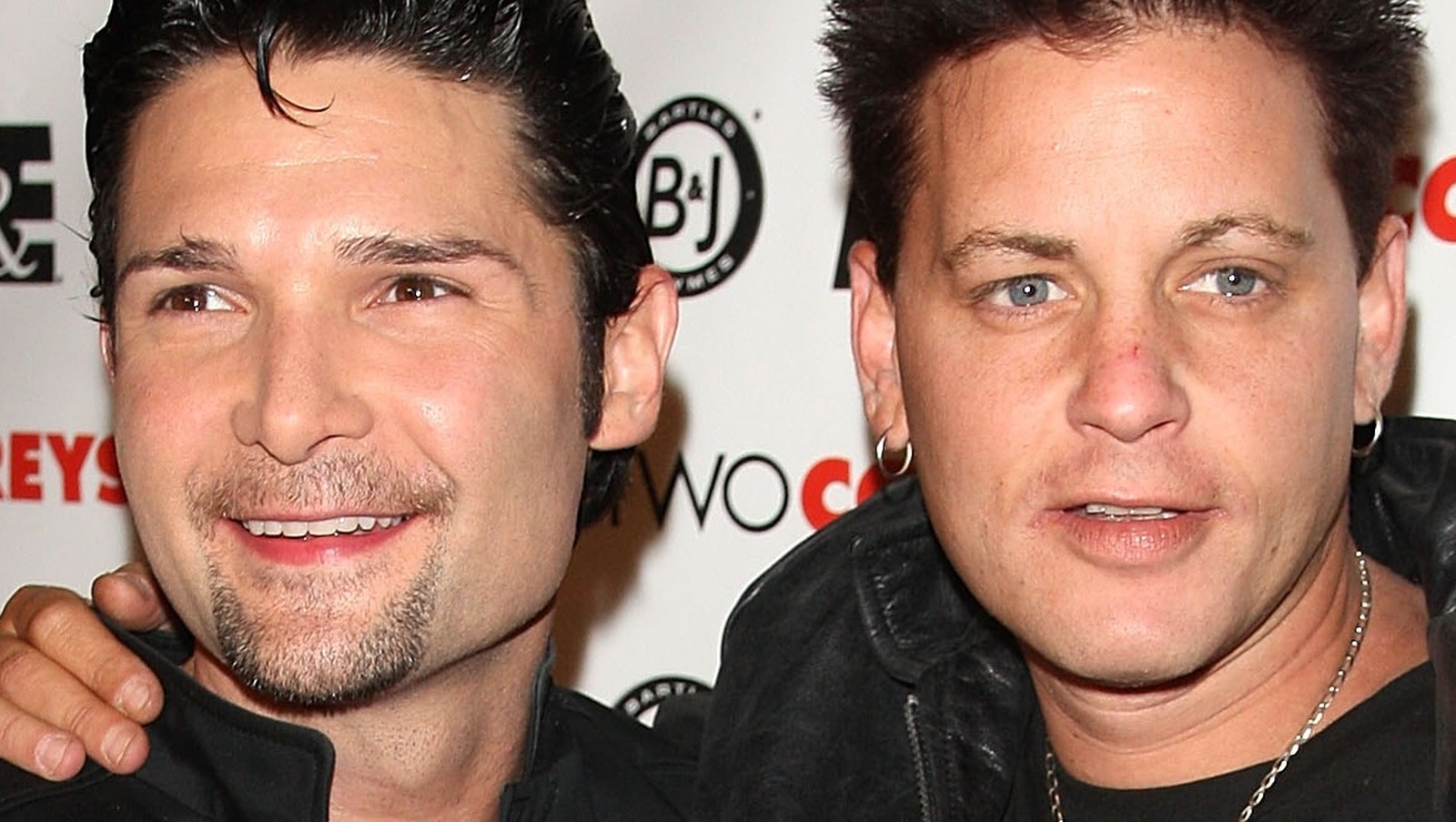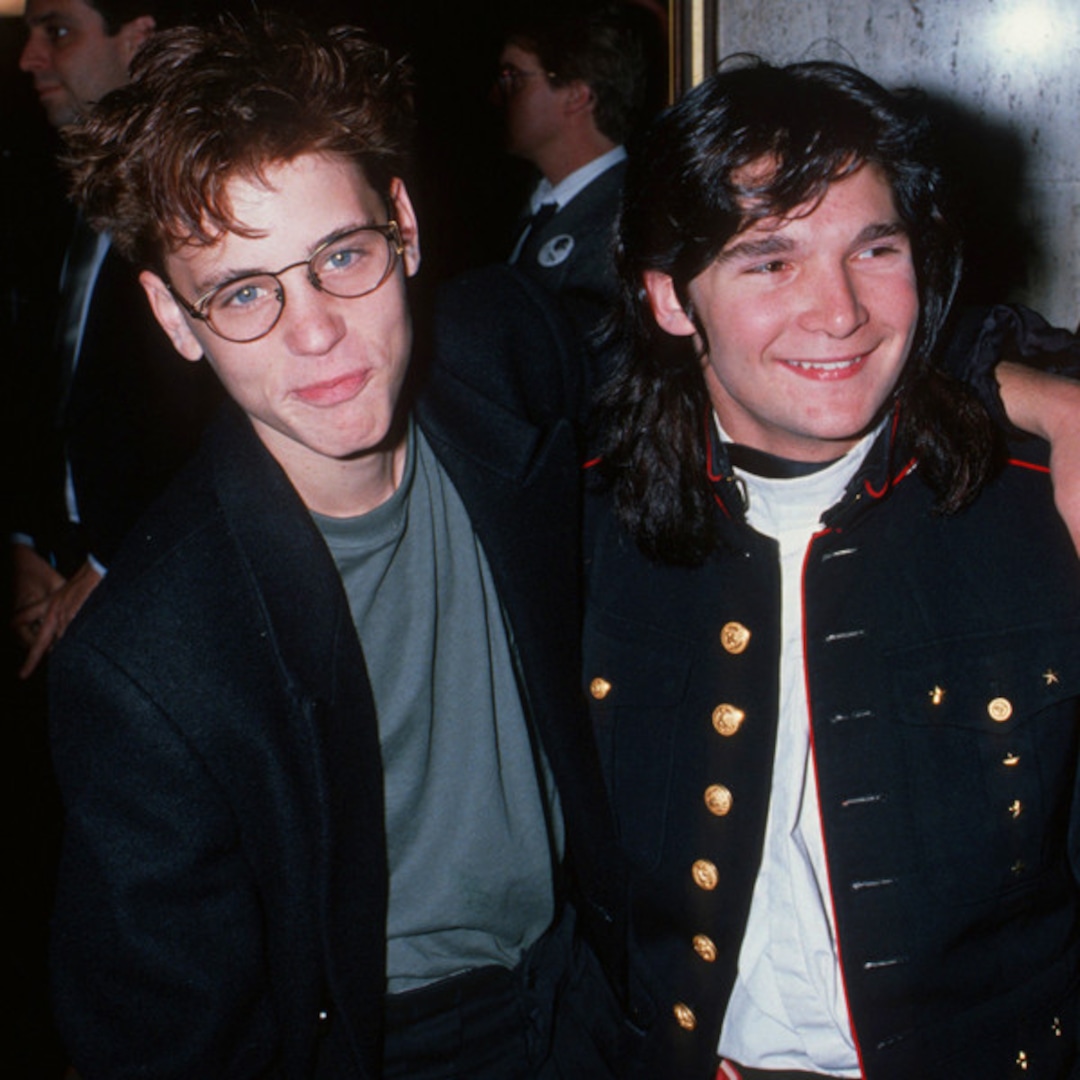What Is Corey Perry's Salary: Unpacking Earnings In Professional Hockey
It's a common thought, isn't it? We often find ourselves wondering about the earnings of well-known figures, especially those who make a big splash in the world of sports. The question, "What is Corey Perry's salary?", pops up quite a bit for hockey fans and even just curious folks. People are naturally interested in how much top athletes earn, and what goes into those big numbers.
Figuring out a professional athlete's exact pay can be a bit more involved than you might think, you know? There are so many moving parts, from the specific terms of a contract to the overall financial health of a league. It's not just a simple number; it's a whole picture with lots of details. So, when we ask about someone like Corey Perry, we're really looking at a much bigger system.
While this article aims to shed light on what determines a hockey player's salary, and the general idea of earnings in the NHL, it's important to note something right away. The specific text you provided to help with this piece actually talks about other individuals named Corey, like the actor and musician Corey Feldman, and the football player Corey Ballentine. So, we won't be pulling exact salary figures for Corey Perry directly from that particular text, since it doesn't mention him or his earnings at all. Instead, we'll talk broadly about how salaries work in the league where someone like Corey Perry plays, and how public figures' earnings are often a topic of interest.
Table of Contents
- Understanding Player Earnings in the NHL
- Factors That Shape a Hockey Player's Paycheck
- The Journey of an NHL Contract
- How Player Performance Impacts Salary
- The Salary Cap and Team Finances
- Public Interest in Athlete Salaries
- Beyond the Ice: Other Coreys in the Spotlight
- Frequently Asked Questions About Athlete Salaries
Understanding Player Earnings in the NHL
When you think about a professional hockey player's salary, it's not just a flat amount, is that? The National Hockey League, or NHL, has a very structured system for how players get paid. This system is set up by something called the Collective Bargaining Agreement, which is a big deal between the players' union and the league itself. This agreement lays out all the rules for contracts, salaries, and benefits, so it's very important.
Every player's journey to a big contract starts somewhere. For younger players, they often sign what are called entry-level contracts. These deals have limits on how much a player can earn and for how long they can sign. It's a way to bring new talent into the league while keeping things balanced for the teams. As players get more experience, they can sign bigger, longer deals, which is where the really significant money comes in, usually. It's a progression, more or less.
The total amount a team can spend on player salaries is also capped, which is known as the salary cap. This cap changes a little bit each year, depending on how much money the league makes overall. It's designed to keep the competition fair between teams, so that richer teams can't just buy all the best players. This cap really influences how teams manage their rosters and how much they can offer players, actually.
Factors That Shape a Hockey Player's Paycheck
So, what makes one player earn more than another? There are quite a few things that come into play. A player's age, for instance, matters a lot. Younger players on their first contracts tend to earn less, while seasoned veterans who have proven themselves over many years often command higher salaries. Experience really does count in this game, it seems.
Performance is another huge piece of the puzzle. A player who consistently scores goals, blocks shots, or helps their team win games is going to be more valuable. This means they can ask for more money when it's time to sign a new deal. Their role on the team is also very important; a top-line forward or a starting goalie usually earns more than a fourth-line player or a backup, naturally.
Injuries can also impact a player's earning potential. If a player has a history of serious injuries, teams might be a bit more hesitant to offer a long-term, high-value contract. It's a risk for the team, you know? The market value for players in similar positions and with similar skills also plays a role. If there are many talented defensemen available, for example, the price for each might go down a little bit. It's like any job market, in a way.
The Journey of an NHL Contract
Getting an NHL contract is a complex process, really. It starts with a player being drafted, or sometimes signed as an undrafted free agent. Their first contract, as mentioned, is usually an entry-level deal. These deals are pretty standardized, with a base salary, signing bonuses, and performance bonuses. It's a way for players to get their foot in the door and show what they can do, you know?
After their entry-level contract, players become either Restricted Free Agents (RFAs) or Unrestricted Free Agents (UFAs). RFAs can sign with other teams, but their current team has the right to match the offer or receive draft picks as compensation. This gives teams some control over their young talent. UFAs, on the other hand, can sign with any team they want, which often leads to bigger contracts because there's more competition for their services. It's a pretty big moment for players when they reach UFA status.
Negotiations for these contracts can be very intense. Players often have agents who represent them and work to get the best possible deal. These agents consider the player's past performance, future potential, and what other similar players are earning. It's a bit of a strategic game between the player's agent and the team's general manager, trying to find a fair price that works for everyone, you know?
How Player Performance Impacts Salary
Player performance is, arguably, one of the biggest drivers of salary in professional sports. Think about it: a player who consistently puts up impressive numbers, whether it's goals, assists, saves, or strong defensive plays, just makes their team better. Teams are willing to pay a premium for that kind of consistent, impactful contribution. A player who leads the league in scoring, for instance, is naturally going to be in high demand, and that demand drives up their market value.
Beyond raw statistics, a player's leadership qualities also play a part. Someone who is a strong presence in the locker room, who motivates teammates, or who has a reputation for clutch performances in big games, is incredibly valuable. These intangible qualities might not show up on a stat sheet, but they are very important to a team's success, and coaches and general managers really notice them. So, in a way, being a good teammate can also affect your paycheck.
Consistency over several seasons is also key. A player might have one amazing year, but if they can't replicate that success, their long-term earning potential might be limited. Teams prefer players who can deliver high-level performance year after year. This reliability gives teams confidence in investing a lot of money in a player. It’s about sustained excellence, you know, not just a flash in the pan. That really makes a difference.
The Salary Cap and Team Finances
The salary cap is a really important concept in the NHL, and it affects every single contract. It's the maximum amount of money that all the player salaries on a team can add up to in a given season. This cap is designed to create a more even playing field across the league, so that teams in smaller markets can compete with teams in larger, wealthier markets. It means every team has to be pretty smart about how they spend their money, basically.
Teams have to manage their cap space very carefully. If they sign too many high-priced players, they might not have enough room under the cap to sign other important players, or even to add new talent. This can lead to tough decisions, like trading away a popular player to free up cap space. It’s a constant balancing act for general managers, trying to build a competitive team while staying within the financial limits, you know?
The cap also influences contract length and structure. Sometimes, a team might offer a player a longer contract with a slightly lower average annual value (AAV) to spread out the cap hit over more years. Other times, a player might take a shorter deal to bet on themselves and try to earn a bigger contract later if their performance improves. It's a very strategic part of the game that fans often don't see, but it's always there in the background, shaping things, really.
Public Interest in Athlete Salaries
It’s very clear that people are just naturally curious about how much money public figures earn. This is especially true for athletes who are often seen as heroes or role models. The high salaries of professional athletes can sometimes spark conversations about fairness, the value of entertainment, and even economic inequality. It’s a topic that can get pretty lively, you know?
The media plays a big role in this interest. Sports news outlets often report on player contracts, trades, and salary cap implications. This information is usually publicly available, so it's not a big secret, more or less. Fans like to know what their favorite players are making, and it adds another layer to their understanding of the sport and how teams are put together. It helps them follow the business side of the game, too.
Sometimes, the public's perception of a player's salary can be different from the reality. A player might have a large contract, but a significant portion of it could be paid out in bonuses or spread over many years. Also, taxes, agent fees, and escrow payments (money held back by the league) mean that the actual take-home pay is quite a bit less than the advertised salary. So, what you see on paper isn't always what they get in their bank account, you know?
Beyond the Ice: Other Coreys in the Spotlight
When we talk about public figures named Corey, it's interesting to see how varied their careers and public lives can be. For example, the name Corey, of Irish origin, is derived from the Gaelic word “coire,” which means “hollow” or “cauldron.” The hollow connotation of the name signifies an individual who possesses deep inner qualities, so it's a name with some history, apparently.
Our provided text, for instance, brings up Corey Scott Feldman. He's an American actor and musician, born July 16, 1971. As a youth, he became well known for his roles in popular 1980s films such as "Friday the 13th." He's had a long career in entertainment, and his work as a musician also keeps him in the public eye. Corey Feldman puts on a striking display as he performs in California, and he lights up the stage at Corey Feldman & Friends Live. His career path is very different from a professional athlete, of course, and so too are the ways he earns money.
Then there's Corey Ballentine, a cornerback in professional football. The Green Bay Packers, for example, have signed CB Corey Ballentine and released CB Gregory Junior, with General Manager Brian Gutekunst announcing the transactions Monday. Check out this biography to know about his childhood, life, achievements, works & timeline. Like hockey players, football players' salaries are determined by contracts, team needs, and league-specific rules, but the details of their earnings, just like those of actors, are usually tied to different industry standards and collective bargaining agreements. It's just a different kind of public life, you know?
Frequently Asked Questions About Athlete Salaries
How do professional sports leagues determine player salaries?
Professional sports leagues, like the NHL, usually determine player salaries through a collective bargaining agreement (CBA) between the league and the players' union. This agreement sets rules for things like minimum salaries, salary caps, and different types of contracts, such as entry-level deals or veteran contracts. It’s a very structured system, basically, designed to keep things fair and competitive for everyone.
What factors typically influence a player's salary in the NHL?
Several factors influence a player's salary in the NHL. Key elements include their on-ice performance, their experience level, their role on the team, and any past injury history. The overall market value for players with similar skills and positions also plays a big part. A player who consistently performs at a high level and stays healthy tends to earn more, naturally.
Are athlete salaries fully guaranteed, or can they change?
It really depends on the specific contract. In the NHL, many contracts are fully guaranteed, meaning the player gets paid even if they get injured or are released. However, some contracts might have performance bonuses or clauses that can affect the total amount earned. Also, things like escrow, where a portion of a player's salary is held back by the league, can affect their take-home pay. So, it's not always a simple, fixed number, you know?
Learn more about professional sports finances on our site, and link to this page Understanding Player Contracts.
For more general information on professional hockey, you might want to visit the

Exploring The Iconic Movies Of Corey Feldman And Corey Haim

Corey Haim And Corey Feldman

Teen Star Tragedy: Inside Corey Feldman & Corey Haim's Friendship